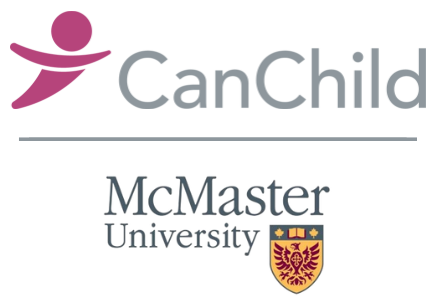Helpful tip sheets written by parents who have children with Cerebral Palsy for parents.
Read Resources
35 resources found
Knowledge Broker Study Report
Knowledge brokering is the process of “bringing people together, to help them build relationships, uncover needs, and share ideas and evidence that will let them do their jobs better.
Read Resources
Knowledge Transfer in Health Care
In health care, there has been increasing recognition of the need to facilitate the transfer of research evidence into clinical practice and policy development.
Read Resources
Integrated Knowledge Translation in Childhood Disability: Engaging with Partners Throughout the Research Process
This reflection paper is intended to raise awareness and stimulate thinking about Integrated Knowledge Translation (iKT) and how one might engage with a range of partners to develop iKT strategies.
Read Resources
What helps adolescents with cerebral palsy to be physically active? Developing a program to support youth based on focus groups.
In this communication we want to share our study protocol as part of a program to support physical activity for youth with cerebral palsy (CP) using a focus group methodology.
Read Resources
Determining Physical Activity Levels and Cardiovascular Health in Adults with Cerebral Palsy (Stay-FIT 20-40 years study)
In the Stay-FIT pilot study, it was determined that the physical activity level of adolescents with CP (mean age 13.5 years) was lower than that of their healthy peers. However, the vessel health was not statistically different.
Read Resources
Canadian child development organizations lead research in innovative supports for making practice changes based on evidence
Administrators in the study reported that knowledge brokering appears to be an efficient strategy for providing educational opportunities that enable integration of new ideas into everyday practice.
Read Resources
Early Identification: Are Toddlers with Speech/Language Impairments at Increased Risk for Developmental Coordination Disorder?
Some children with speech/language impairment show delays in their ability to communicate, which are not due to any sensory, intellectual or neurological disorder.
Read Resources
Developmental trajectories of youth with disabilities, ages 12 to 25 years
This project was initiated and funded by the Ministry for Child and Youth Services (MCYS) in Ontario. The results of our synthesis have been used for the ministry’s development of a Youth Policy Framework, named stepping stones.
Read Resources
Are Services Meeting the Health Needs of Children with Cerebral Palsy?
Cerebral palsy (CP), one of the most common physical disabilities in childhood, is often associated with co-occurring health conditions, which often have a great impact on children and families. As a result, children with CP require a wide variety of health services.
Read Resources
